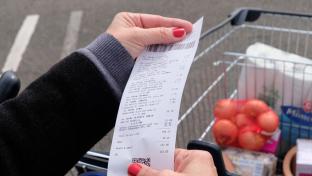Independent grocers are a dying breed
Almost weekly these days, Canada loses an independent grocer. Last week, we learned Empire would purchase one of Canada’s top premium independent grocers, Longo Brothers Fruit Markets. Empire spent $357 million for 51% of Longo’s, with plans to achieve 100% ownership over time.
Longo’s operates 36 beautiful stores in Southern Ontario, and like most independent grocers, Longo’s was truly a family business. The three Longo brothers founded the company in 1956, and more than 25 family members across three generations continue to work in the company.
Canada is home to approximately 15,500 grocery stores. Less than 34% are independently owned and operated, and that percentage is continuously shrinking. Independent grocers are known to offer something different to customers--products you would not find elsewhere. The service is often highly personalized. Some managers know many of their customers on a first-name basis. Most Canadians would not know that a lot of the innovation we have seen in food retailing in Canada has come from independents. In fact, Longo’s has been in the e-commerce game since 2004, when it acquired Grocery Gateway, at a time when few believed buying food online was even a thing. Farmboy and Longo’s are just a few examples of how independent grocers have a different way of looking at things. It’s refreshing.
Loblaws, Sobeys, and Metro are selling practically 75% of all the retailed food in Canada right now, and that percentage has continued to rise. Both Costco and Walmart are now selling a combined $32 billion dollars worth of food to Canadians. Pressures on independents are real.
To make matters worse, here is another pressure point for independents: It is often reported that most major grocers are charging more fees to suppliers to finance some key strategic initiative or other. Just last week, we learned Walmart would invest $500 million to build a distribution facility to support its e-commerce platform. Some of the funding likely came from big-name suppliers. Independent grocers are slowly becoming less competitive, since they cannot bully their way through the supply chain, as major grocers are doing. They just do not have enough power and influence.
Empire/Sobeys is the only major grocer in the country which has expressed concerns about extra fees imposed on food manufacturers. It is affecting our food processing sector’s competitiveness, of course, but it is also affecting how independent grocers can keep up with the rest of the field.
This is likely why the Longo family opted to sell, and Empire was the obvious choice given its stance on supply chain bullying.
The good news is that major grocers are starting to value the uniqueness of these independent retailers. Years ago, while Loblaws completely changed the experience at Fortinos, Empire alienated Safeway shoppers out West with its acquisition, scrapping cherished products and the grocer's loyalty program. All grocers have implemented drastic changes and massacred a brand or two.
In the past, it was all about consolidation and synergies at all costs. But in recent years, the approach appears to have changed. Loblaw’s acquisition of TNT, a retailer that sells mostly Asian food, was executed with few hiccups. Farm Boy shoppers in Ontario, have seen little difference since it was acquired by Empire in 2018. And similar to the Farm Boy deal, Longo and his executive team will remain at the helm of the company, which will operate separately from Empire.
Canadians should be concerned about the fate of our independent grocers. A committee in Ottawa is currently looking into these outrageous fees charged by some grocers. For the sake of the independents, let’s hope the committee comes up with some good ideas when it tables the report in July.





